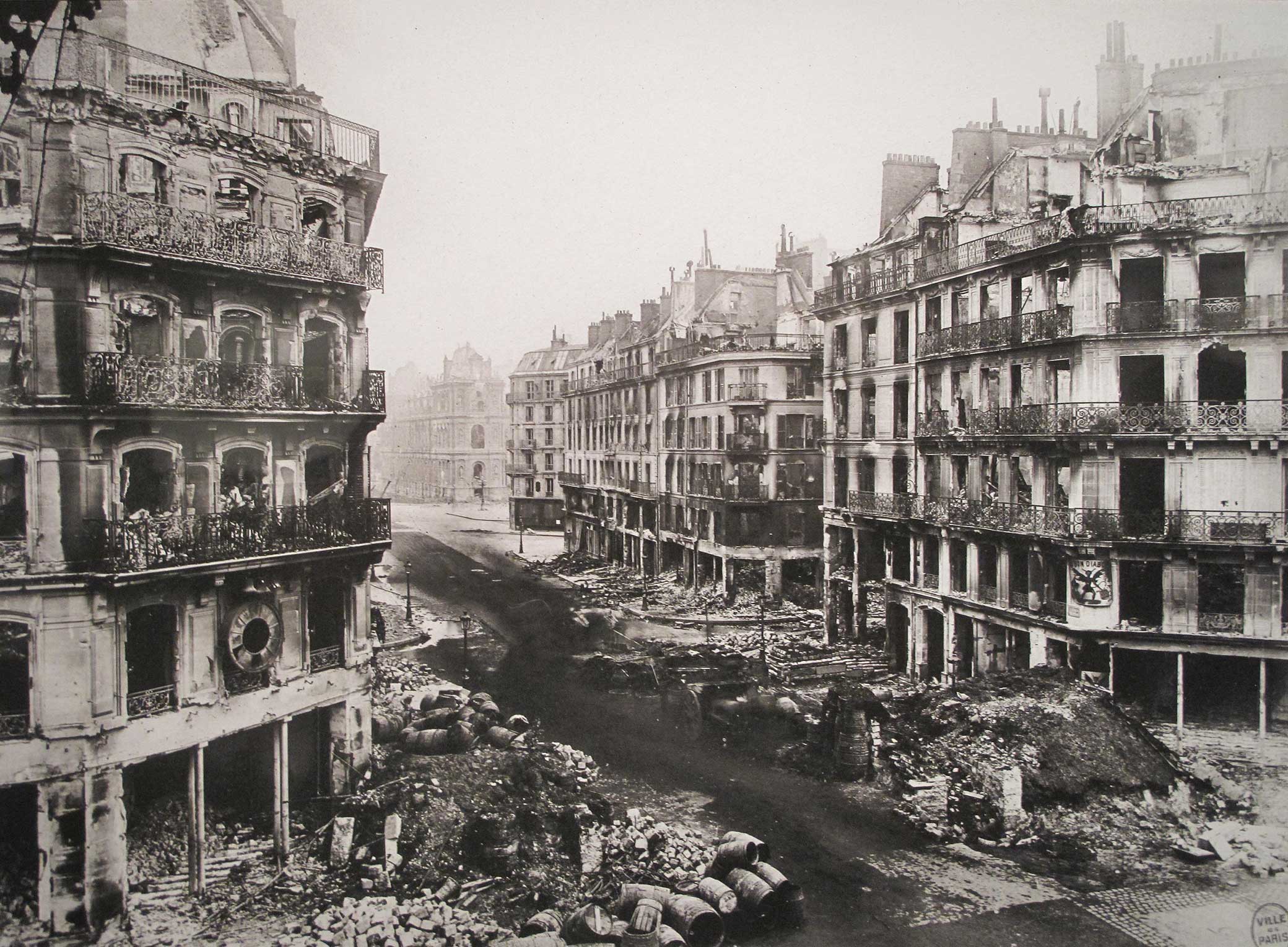
Rue de Rivoli, 1871. Wikimedia Commons.
• Considering the history of gunpowder and “the seeds of modern war.” (Medievalists.net)
• The origins of fundamentalism, which “emerged after medieval society in Europe gave way to the modern era” and “a previously unheard-of secularization.” (JSTOR Daily)
• On New Orleans’ house museums and “the responsibilities of memory work.” (Harper’s Magazine)
• Unearthed: a luxury suite from the late Roman period. (BBC News)
• “The Quest to Preserve Syria’s Cassette-Tape Era”: “Deciding what should be preserved—and how—is critical in times of conflict.” (Atlas Obscura)
• Walking with the ghosts of New York City’s stables, farms, theaters, trade districts, and more: a conversation with Lucy Sante and Michael Kimmelman. (Literary Hub)
• The ambition, scope, and legacy of Mrs. Dalloway: “The British text reflects Woolf’s final thoughts about her novel, and its changes highlight her sense of its deepest meanings…Like every writer, Woolf discovered what she wanted to say in the act of revising.” (The New York Review of Books)
• On the cinematic history of the Philippines. (Hyperallergic)
• The life and afterlife of the Paris Commune: “The ghost of the Commune continued to haunt the regime that had killed it.” (The Nation)
• This week in obituaries: Christine McVie, Jean-Marie Straub, Aline Kominsky Crumb, Jiang Zemin, Jake Flint, Michael Feingold, Irene Cara, Clarence Gilyard Jr., John Hadl, Hiroshi Miyamura, Susan Kikuchi, Louise Tobin, Henry Rohland, Hans Magnus Enzensberger, Charles Koppelman, Melody Miller, Eleanor Jackson Piel, John Y. Brown Jr., Marcus Sedgwick, Börje Salming, Michael Pertschuk, Gaylord Perry, Maurice Norman, and Tom Phillips.